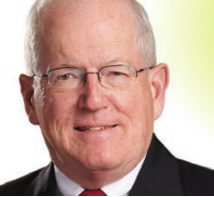For an observer of New Hampshire public policy discussions for over 50 years, the subjects of discussion in Concord recently are both déjà vu and somewhat disconcerting.
A legislative study committee, looking to craft a system for the legal sale of marijuana — spurred to action by Gov. Chris Sununu’s change of position to one of support for state sale of the drug at state liquor stores — took a final vote that resulted in no recommendation being adopted.
New Hampshire’s traditional opposition to the legalization of recreational marijuana has been supported by the state Senate, with the House more sympathetic to changing position. Those who are familiar with substance abuse, and the strength of current marijuana products, still oppose legalization as dangerous to many citizens, and an unnecessary expansion. Supporters note that New Hampshire is the only New England state that continues to outlaw sale of the drug.
Another study committee was formed to examine the current state of “charity gambling” in New Hampshire, in light of the tremendous increase in such activity, the size of the sites of the “halls” that now have become casinos, and the interest in purchasing them by national gambling companies.
Many observers were perplexed when legislators named to the study committee were proponents of expanded gambling, and even initially included the wife of one of the owners of one of the sites, himself under investigation, former Sen. Andy Sanborn. She resigned after the commotion, but the criticism of membership bias remained.
For decades, New Hampshire rejected proposals for the creation of one or a limited number of gambling casinos in the state. Years ago, the concept of “charitable gambling halls” became law, as a way for charities to benefit from additional games of chance, in addition to the bingo games and “casino nights” that charities often held in their locations as fundraisers.
Having fixed locations where charities could hold nights benefiting them evolved over time to professional operations where charities could apply to have nights assigned to them, for them to receive the required percentage of the “take.” Operators were successful in getting the size of bets increased, and recently, “historic horse racing” was legalized, adding devices that are similar to slot machines to the mix.
As the size and scope of these establishments increased, along with their profits for the operators, advertising has hit television, radio and print media, and new buildings have been built, new names applied, that match reality, naming them casinos. National companies, as noted, have purchased or are interested in purchasing sites, and it has become big business. Charities wonder if they are all given equal opportunity to benefit, and boards of charities debate whether it is consistent with their missions to participate in expanded gambling.
All of this has resulted in the need to study what has evolved, compared to what was originally proposed, and what, if anything, needs to be done to further regulate the enterprises. Looking back at gambling proposals that were rejected, observers cannot help but note that what was defeated directly may have happened by indirection, and wonder if this is positive for New Hampshire. This observer, long active in opposing expanded gambling, thinks not.
Most recently, after the tragic killing of a security guard and former police chief at the state psychiatric hospital in Concord, a bipartisan group of legislators received permission to introduce a bill in the Legislature that will require New Hampshire to send information about those involuntarily committed to mental health facilities to the national FBI database used to deny gun sales to individuals who should not possess them.
As with many issues, the devil is in the details of such a proposal, given the concern about mental illness, need for treatment, and the rights of those who improve and return to live productive lives. Also, the amount of mental illness among veterans and the need for them to get needed treatment was included in the discussion.
Questions arise from this discussion. Why has New Hampshire not provided this information already? Why do we not have reasonable gun control laws here and elsewhere in this country, in light of the many tragic mass shootings? The answer, of course, is the political power of the gun lobby, with its twisted view of what the Second Amendment protects and provides.
Longtime observers of New Hampshire public policy debates remember the constant theme of gun rights versus gun control, and the increasing power of organizations like the National Rifle Association and its extreme policy positions. This observer hopes the modest proposal being discussed passes, but has his doubts, given the history of such efforts.
Much to think about and study, as these topics say a lot about what New Hampshire values, and may become as a state.
Brad Cook is a Manchester attorney. The views expressed in this column are his own. He can be reached at bradfordcook01@gmail.com.